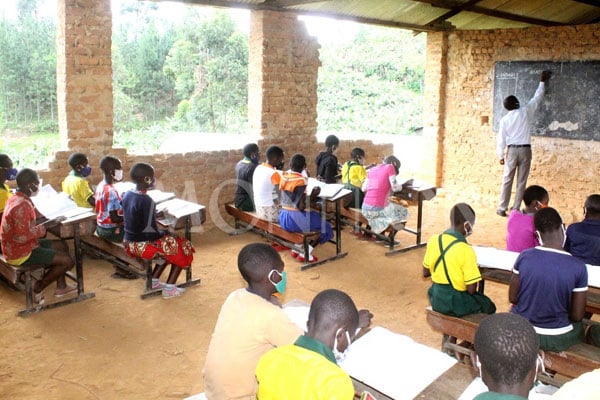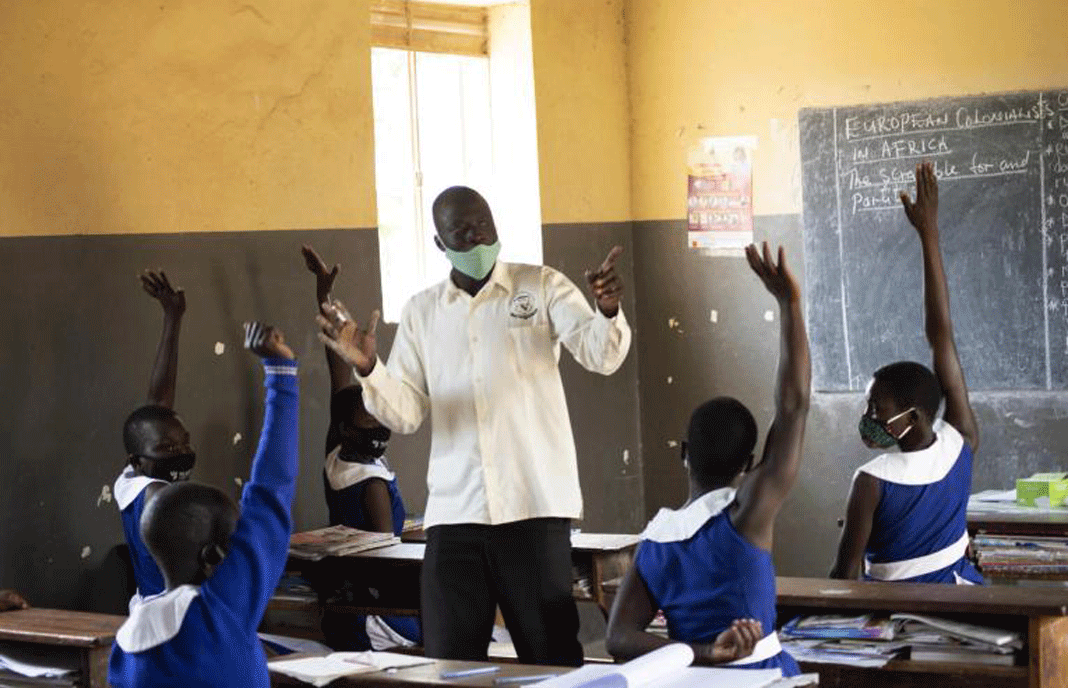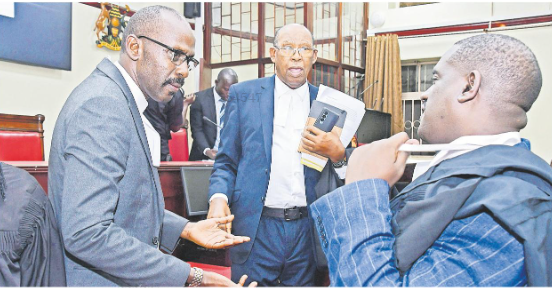
State Minister for Higher Education John Chrysostom Muyingo speaks during plenary at Parliament on August 6, 2024. PHOTO | DAVID LUBOWA
A new Bill, which seeks to underpin the ethical standards within the teaching profession, is recommending a stringent penalty of Shs14m for learning institutions that hire teachers without a practicing licence.
The proposals are contained in the National Teachers Bill, 2024, which was tabled last evening in Parliament by the state minister for Higher Education, Mr John Chrysostom Muyingo. The Bill, which seeks to plug defects and gaps in the existing law—the Education (Pre-primary, Primary, and Post-primary) Act, 2008, prescribes a Shs10 million fine or the equivalent of a year in jail for persons persons found teaching after their licence has been revoked.
“Currently, there is absence of an effective legal framework to regulate teachers, including internship management, teacher registration, teacher licensing, teachers’ professional conduct, continuous professional development and teachers’ discipline generally,” the Bill reads in part.
It adds: “The objective of the Bill is to establish a professional body responsible for regulating the teaching profession by consolidating the registration and licensing processes, providing for discipline and professional conduct and continuous professional development of the teaching profession.”
Seeking to restore sanity within the education sector, the government will impose a Shs5 million fine or two years imprisonment or both penalties for teachers found using fake academic papers to secure a licence, if the Bill is passed in its current form.

A teacher supervises pupils as they write. FILE PHOTO
The Bill also empowers the National Council for Higher Education (NCHE) to issue a certificate of registration to persons found fit to teach in Uganda.
The practicing certificate is only valid for four years and can only be renewed at least two months from the expiry date. This certificate can be cancelled by the NCHE if a teacher is found not fit to practice and must be surrendered to authorities a month after. The Bill prescribes a Shs5 million fine or a five-year jail term for a person passing off as a teacher without a certificate.
A section of lawmakers, including the Leader of the Opposition in Parliament (LoP), Mr Joel Ssenyonyi, and the Kalungu West MP Joseph Ssewungu, earlier put the front bench to task regarding the sticky issue of salary disparities between science and arts teachers.
“Is there value in what the government was insisting on that the science teachers get more pay? Because this demoralises the arts teachers and yet they also contribute to this country,” Mr Ssenyonyi argued.
In response, Mr Muyingo said: “I am presenting the National Teachers’ Bill and when you read through this Bill, most of the issues being raised will be addressed. It covers management of the entire profession, which also entails teachers,” Mr Muyingo told Parliament.
Elsewhere, the programme officer at the Initiative for Social and Economic Rights (ISER), Mr Musa Mugoya, welcomed the Bill.
“Teaching is a noble profession and it is important that effective measures are put in place to regulate the profession such that we can do away with quack teachers,” Mr Mugoya said.
He added: “Considering the average remuneration of teachers in the country, especially in private schools, I find the deterrent measures put in place as penalties to be sufficient.”

The General Secretary of the Uganda Professional Science Teachers' Union, Mr Aron Mugaiga (R) and the Union's chairperson, Mr Vincent Elong during a press conference in Kampala in March, 2024. Photo | Jane Nafula
Whereas he agreed with Mr Mugoya, the general secretary of the Uganda Science Teachers Union, Mr Aron Mugaiga, said the outlined penalties may be abused to target a section of teachers for reasons he didn’t detail.
“Our worry is these large sums of money being suggested as penalties. We think some [people] may as well use it as a loophole to torture teachers,” he said.
He added: “We have no problem with it [Bill] because we were involved in the formulation, although when it came to penalties, they [ government] did not take our suggestions. That is also good to keep teachers in check. This improves the performance.”
Before the legislation is enacted and implemented, Mr Mugaiga wants the government to spread out licence renewal centres across the countryside.
Bill at a glance
• One must register to be a teacher in Uganda
• Teachers should take a competence test to be registered to be given certificate of registration.
• Required to have a degree in education to register and should have undertaken prescribed internship.
• Certificate can be cancelled if registered using misleading information.

Students attend class at Kabarole Primary School in 2021. PHOTO/FILE
• Non-Ugandans who want to be teachers in Uganda should have been teaching for three years in previous country, produce work permit, certificate of good conduct from Interpol and his or her academic qualifications should have been equated to Uganda standards by National Council for Higher Education (NCHE)
• License is only valid for four years
• License should be renewed at least 2 months before expiry
Trend
The Bill, seeks to plug defects and gaps in the existing law—the Education (Pre-primary, Primary, and Post Primary) Act, 2008
What they say...
Joel Ssenyonyi, Leader of the Opposition in Parliament: "Is there value on what government was insisting on that the science teachers get more pay? Because this demoralises the arts teachers and yet they also contribute to this country."
Musa Mugoya, programme officer, ISER: "Teaching is a noble profession and it is important that effective measures are put in place to regulate the profession such that we can do away with quack teachers... the deterrent measures are sufficient.
Aron Mugaiga, general secretary, Uganda Science Teachers Union: "Whereas this teacher regulation is a good one, the government should focus on ensuring that they put systems in place that will enable these teachers to get licenses. "







